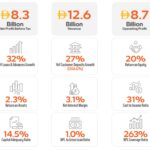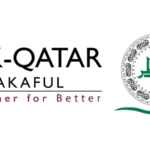At the beginning of July, Airlift Technologies Pvt. Ltd. was getting ready to raise more money so it could grow. Six days later, the startup, one of the most important in Pakistan, went out of business. The e-commerce company went out of business less than a week after it failed to finish a funding round. It shows how badly the global drop in tech valuations hurts startups in emerging markets.
A year earlier, Airlift had raised $85 million, a record for the country. It had cut spending to attract investors as it prepared for a new round. But then the main backer pulled out, leaving Airlift without money to keep going and forcing it to shut down quickly.
“I was surprised, as was the rest of the team, when the round fell apart at the last second,” co-founder Usman Gul said in an interview. “Airlift was not ready for the change in how people felt about the capital markets.”
Even though the company was growing well and making progress toward making money, investors were scared off by a slowing global economy and falling tech stocks. Airlift is one of many startups in Pakistan and the country next door, India, that have hit a wall because venture capitalists aren’t investing in the area as much as they used to because they think it’s too risky. Gul, 33 years old, said that one of Airlift’s mistakes was not raising more money when the markets were better last year.
This year, investors are more interested in how much money a business can make than how fast it grows. This means that startups’ business models are being looked at more closely. As Airlift got ready for its most recent fundraising round, it let go of a third of its employees, lowered its valuation, and cut the amount it wanted to raise. As of July 5, when the company sent the last documents to investors, it seemed to have all the necessary commitments. But things went from bad to worse in just two days.
Gul said that the principal investor waited to send the money because he wanted more investors to send money at the same time. He did not say who the leading investor was. The other investors asked for two to three months because they feared a global recession and a drop in the capital markets. After less than a week of talks, Airlift’s money ran out, and the company had no choice but to shut down.
“Our biggest mistake was not putting a multi-stage institutional investor at the top of our list,” Gul said, referring to more prominent investors who support startups through multiple funding rounds. “You need that multi-stage institutional investor, like Accel or Sequoia, who believes in the project and can write bigger checks.”
Gul praised the help from its early backers, but he said that their small size meant they couldn’t put in as much money as Airlift needed to keep growing. Before the latest round fell apart, First Round Capital, Indus Valley Capital, Buckley Ventures, 20VC, and others had promised money to the company.
Airlift helped shine a spotlight on Pakistan with its record funding round that stood out during what turned out to be a breakout year for the South Asian nation’s startups—they raised a record of more than $350 million in 2021. But fundraising has slowed down since then, which has caused companies to halt their growth plans. The Avatars, which Vitol backed, have left Pakistan.
Swvl Holdings, based in Dubai, has stopped offering daily rides in the country, and Careem Inc., part of Uber Technologies Inc., has stopped delivering food. At home, shares of Zomato Ltd. and Paytm have plunged since their market debuts last year, and even the country’s most valuable startup, Byju’s, has struggled to raise more funds. At first, vans and small buses used by office workers and students were employed by Airlift. During the pandemic, this kind of business slowed down, so the company switched to quick commerce.
Before it went out of business, the new company spent about $85 million over 18 months to set up more than 70 warehouses in Pakistan, grow in South Africa, and increase its visibility by spending money on advertising. As the company prepared for its last fundraising round, it cut its cash burn by 66%. According to Gul, the company was about three months away from operating profitability and about six to nine months away from company-level profitability. Gul said, “We hope to learn something from this.” “Market turnarounds are a reality that requires better planning and preparation on our end.”







